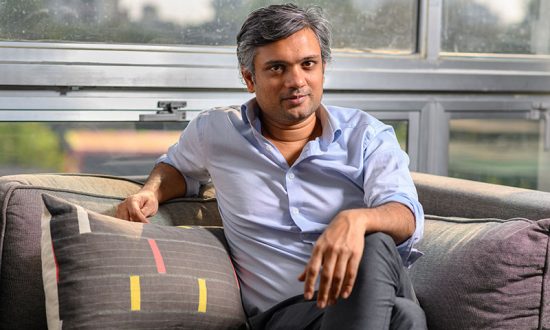Rohan Parikh has attained a BSc in Economics from Wharton Business School, an MBA from INSEAD, and has more than 10 years of experience in the Real Estate and Hospitality industries. In 2013 Mr. Parikh entered the field of education by founding The Green Acres Academy in Chembur, and simultaneously pursuing a Master’s degree in Education through Johns Hopkins University.
Learning is an instinct. Thinking is a skill.
Learning begins at birth. Thinking begins with practice.
Learning promises growth. Thinking promises survival.
Harnessing the learning potential of children, from the first day, can help in making them rational thinkers. In fact, it is a child’s natural inquisitiveness that builds the foundation for developing this life skill.
What is rational thinking?
Rational thinking is a process. It refers to the ability to think with reason. It encompasses the ability to draw sensible conclusions from facts, logic and data.
In simple words, if your thoughts are based on facts and not emotions, it is called rational thinking.
Rational thinking focuses on resolving problems and achieving goals. It is largely developed by the means of regular practice.
This concept requires different skill sets in different situations and is built on some essential parameters such as developing perspectives, making connections, and communicating ideas.
Why is it important to promote rational thinking in children?
It is often said that rational thinking is the key to a child’s seamless existence. It not only aids in the holistic development and character building of children, but it is also essential to problem-solving. Rational thinking is considered to be a stepping stone to success, especially if started young.
Rational thinking is held in such high regard because:
It enhances analytical power
This disciple plays a massive role in improving the vision of children. It expands their capacity to easily grasp things and absorb them much faster. This in turn increases their brainpower and helps them grow up to be more logical and reasonable people.
It helps in framing individual opinions
Rational thinking is the ability to consider, access, organize, and analyze relevant information and then arrive at a systematic conclusion. Through this process, children can sort out different ideas, pick aspects they like best and also voice their opinions more confidently.
This in turn helps them gain respect and attention from society, perform well academically and also align themselves to the demands of rapidly changing times.
It widens insight and intellect
Rational thinking encourages little minds to observe, think and question intelligently. This technique helps children to comprehend situations and problems more holistically. Widening the outcomes they can consider, also enables them to stay prepared for both the best as well as the worst. This is an important trait that makes them fit to survive the outside world.
How can rational thinking be promoted in schools and used to enhance young minds?
It’s not surprising that rational thinking has now become an indispensable part of the ever-evolving elementary education system. Research says that by carefully planning classroom experiences, it is possible to train young minds to practice the art of developing logic and reasoning skills. This in turn can help them make better decisions in life.
Here are some rational thinking exercises for children:
- Thinking challenges
Offer a range of intriguing manipulatives. Ask them to classify objects, compare quantities and form individual perceptions by exploring a concept from multiple perspectives.
- Open-ended questions
Give children a chance to apply what they have learned, consider different situations, think on their feet, problem-solve and boost their self-esteem.
- Different learning styles
Provide children with lots of random materials to explore. Observe whether they like watching an activity or asking questions and help them strike a balance between the two.
- Decision making
To help children apply knowledge and evaluate solutions, encourage them to weigh the pros and cons and pick an idea that works best for them.
- Brainstorming
An excellent learning tool, this critical thinking exercise can give birth to more creativity, better imagination and original thinking. This can lead to constructive inventions, in academics as well as in life.
Contrary to popular opinion, not all thinking is rational. It’s important to adopt the right techniques that can make children ready to meet the challenges of living in a diverse, complex world.




